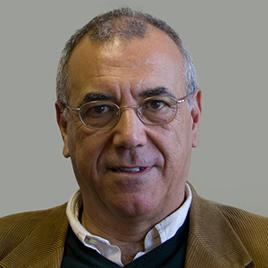5th Meeting - "Prevention of fall risk: biomechanical validation and reliability analysis of Equimetrix - a portable device for balance assessment and training".
Balance control is a fundamental ability to regulate static and dynamic functional asks. It is of wide interest to have light weight and portable tools that can quantify the Realtime balance status of a tested subject (for assessment and/or training purposes). Compared to current systems that measure and analyse Centre of Pressure (CoP) alone, the Equimetrix device provides a Stability Index (SI) based on the cinematics of both Base of Support (BoS) and Centre of Mass (Mass). This work aimed at assessing the quality of the measured BoS and CoM in order to verify if the newly provided Stability Index is able to reflect the balance situations of various balance challenging tasks. Results demonstrate that stable and metastable stances can be discriminated and that the stability index has a higher predictive capability than other traditional parameters, such as the CoM mean path velocity.

Ponentes:
Dr. Pierre Barralon

Master of Science in Signal/Image Processing and Telecommunications from the National Polytechnic Institute of Grenoble (France) and PhD from Joseph Fourier University, Grenoble (France), in Home Monitoring Systems and Data Fusion for the Independent Living of the Elderly. Post-doctoral researcher at the University of British Columbia, Vancouver (Canada) in the Department of Electrical and Computer Engineering (2005-2007) designing and evaluating different tactile feedback devices in different parts of the body used by anesthesiologists during surgical operations. In 2008 he joined Tecnalia's Health Division to work on the integration of kinematic and physiological sensor technologies applied in the fields of both postural control and persuasive interaction. He has published several ISI publications, a patent ("Method and System For Functional Balance Assessment". Publication number: EP3017761 A1) and participation in various European projects among which it is worth mentioning: NIMA FETOPEN [2021-2023], WEARPLEX ICT [2018-2021], EUROBENCH H2020-ICT-2017-1 [2018-2021], ACTIVAGE H2020-IOT-2016 [2017-2020], BALANCE FP7-ICT-2011-9 [2013-2017], SARAFun H2020-ICT-2014-1 [2015-2018]
João Paulo Vilas-Boas

University professor since 1982. Doctor since 1993 and Professor since 2004. Professor of Biomechanics and Science of Sports Training. Teaching experience in undergraduate (1st cycle) and postgraduate (2nd and 3rd cycles) in several courses at the University of Oporto, other Portuguese universities. and foreigners. Director of LABIOMEP - Oporto Biomechanics Laboratory (University of Oporto). Former President of the Assembly of Representatives of FADEUP. Former Vice-Chairman of the Scientific Council of FADEUP. Former Director of the Master in High Performance Sports Training of the FADEUP. Member of the Scientific Committees of the Doctorate Courses in Sports Sciences, and in Physiotherapy of FADE-UP and of the Scientific Committee of the Doctorate Course in Health and Occupational Safety at the University of Porto. Member of the Board of Directors of the Research Unit CIF2D / FCT of FADE-UP. Member of the Ethics Committee of the Sports Faculty of the University of Porto.
Pedro Fonseca

Bachelor in Biomedical Engineering by the Porto Polytechnical Institute (2007-2010), and master in the same field by the Faculty of Engineering of the University of Porto (2010-2012). Is currently pursuing a PhD in Biomedical Engineering at latter institutions, with the development of new methodologies and apparatus for pedicle screw insertion in spine surgery. Researcher at the Porto Biomechanics Laboratory – University of Porto (LABIOMEP-UP), where is also a laboratory technician, has participated in several research projects in biomechanics, including the development and analysis of footwear and sensory garments, the validation of devices for sports and rehabilitation, and fundamental research in motion analysis, muscle activity, balance and sports performance. His research skills include development of electronic solutions for measurement of signals with biomechanical interest, development of software for data processing and analysis. Is a member of the Portuguese Biomechanics Society since 2009.
Márcio Goethel

Master in Human Movement Sciences from the State University of Santa Catarina (UDESC - Brazil) and PhD in Human Development and Technologies from the São Paulo State University (UNESP - Brazil). Post-doctoral researcher at:
- Lodz University of Technology (TUL - Poland) in the Department of Automation, Biomechanics and Mechatronics (2016 – 2017), working with Modeling, kinematic-dynamic analysis and simulation of an exoskeleton prototype for the rehabilitation of people with lower limb motor disabilities.
- University of São Paulo (USP - Brazil) in the School of Arts, Sciences and Humanities (2017 – 2020), working with approaches using Artificial Intelligence to analyze fatigue and pain effects in human performance.
- University of Porto (UPorto – Portugal) in the Porto Biomechanics Laboratory (2020 - present), working with Development of tools based on Artificial Intelligence for the analysis and prediction of phenomena in gait, balance, sports gestures, sports performance, shoe technology, sports equipment technology and neuromuscular behavior during situations of fatigue and muscular pain situations.




